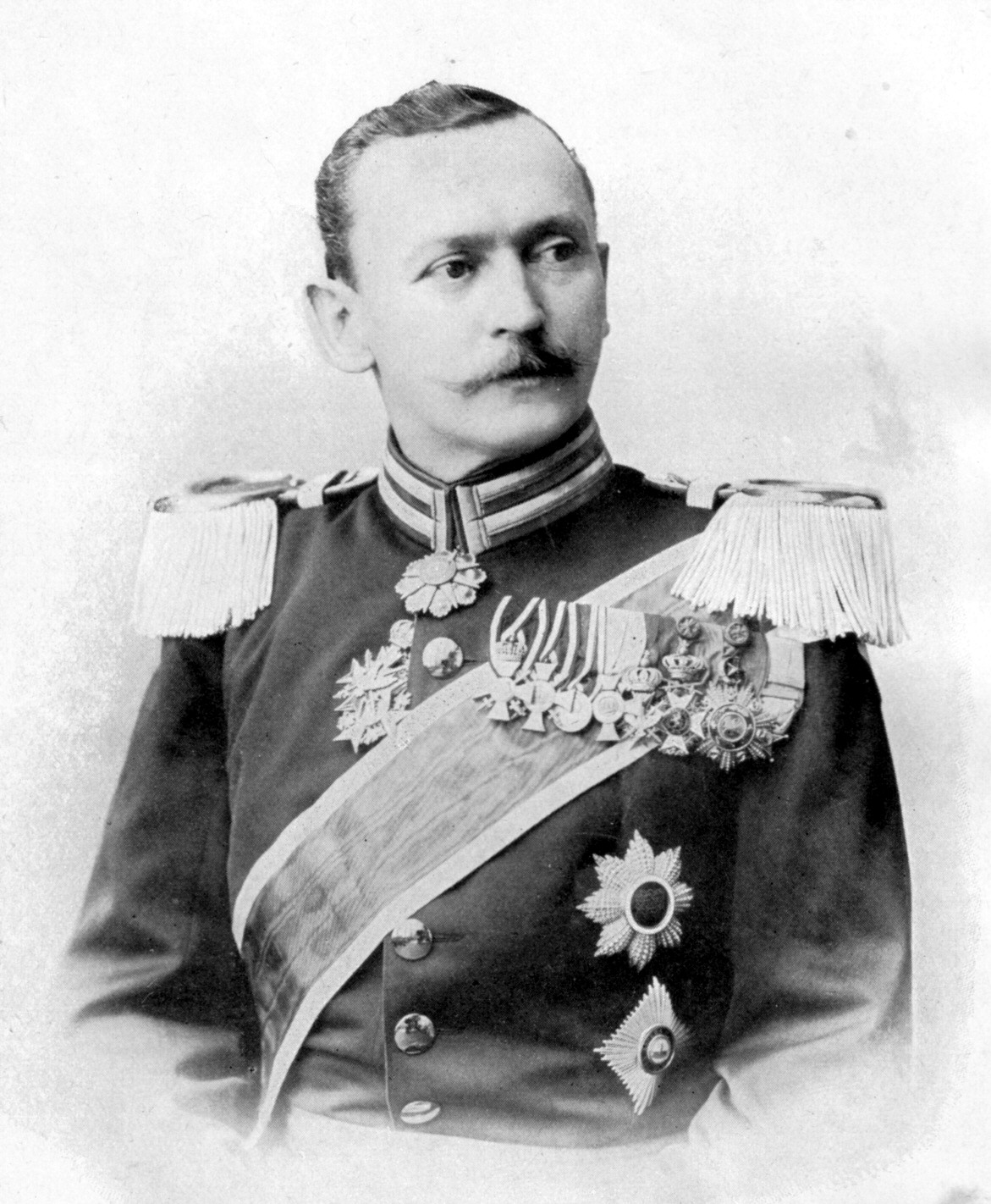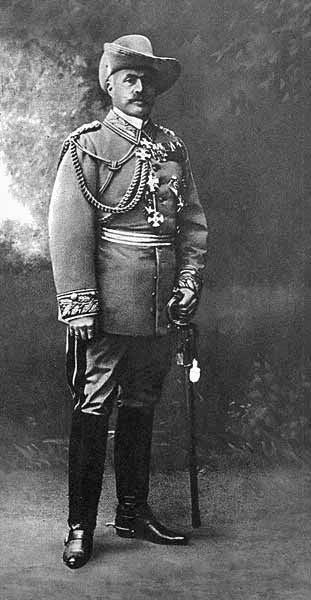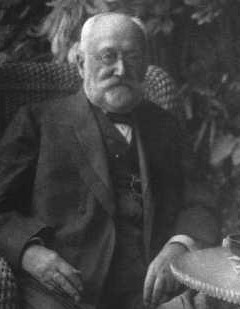|
Reichskolonialamt
The Imperial Colonial Office (german: Reichskolonialamt) was a governmental agency of the German Empire tasked with managing German colonial empire, Germany's overseas territories. Dissolved after World War I, on 20 February 1919 the Imperial Colonial Ministry (''Reichskolonialministerium'') of the German Weimar Republic replaced the Imperial Colonial Office, dealing with settlements and closing-out of affairs of the occupied and lost colonies. Development and reorganization From its inception in 1884, a colonial service organization performed administrative functions (policy and management) for the executive arm of the imperial government. By order of Reich Chancellor Leo von Caprivi on 1 April 1890, responsibility for the colonial service was with the Colonial Department (''Kolonialabteilung''), still as a subsection in the German Foreign Office (Germany), Foreign Office (''Auswärtiges Amt''), but led by a head of section answerable to the Chancellor of Germany, Chancellor. By ... [...More Info...] [...Related Items...] OR: [Wikipedia] [Google] [Baidu] |
German Colonial Empire
The German colonial empire (german: Deutsches Kolonialreich) constituted the overseas colonies, dependencies and territories of the German Empire. Unified in the early 1870s, the chancellor of this time period was Otto von Bismarck. Short-lived attempts at colonization by individual German states had occurred in preceding centuries, but Bismarck resisted pressure to construct a colonial empire until the Scramble for Africa in 1884. Claiming much of the left-over uncolonized areas of Africa, Germany built the third-largest colonial empire at the time, after the British and French. The German Colonial Empire encompassed parts of several African countries, including parts of present-day Burundi, Rwanda, Tanzania, Namibia, Cameroon, Gabon, Congo, Central African Republic, Chad, Nigeria, Togo, Ghana, as well as northeastern New Guinea, Samoa and numerous Micronesian islands. Including mainland Germany, the empire had a total land area of 3,503,352 square kilometers and pop ... [...More Info...] [...Related Items...] OR: [Wikipedia] [Google] [Baidu] |
List Of German Colonial Ministers
This page lists Colonial Ministers of Imperial Germany. With the loss of Germany's colonies in the Treaty of Versailles in 1919, the office was abolished. Directors of the Colonial Department in the Foreign Secretariat (1890–1907) State Secretaries for the Colonies (1907–1918) Ministers for the Colonies (1918–1919) {{Officeholder table end See also *Imperial Colonial Office * NSDAP Office of Colonial Policy * Reichskolonialbund External linksGerman Colonies in Africa [...More Info...] [...Related Items...] OR: [Wikipedia] [Google] [Baidu] |
Friedrich Von Lindequist
Friedrich von Lindequist (born 15 September 1862 in Wostevitz on Rügen; died 25 June 1945 at Macherslust near Eberswalde, Germany) was a high colonial official of the German Reich. He served as Governor of German South West Africa from November 1905 until 20 May 1907. During his tenure as Governor he introduced Karakul breeding to the white settlers of the German colony. Lindequist later served in the ''Reichskolonialamt'' of Imperial Germany, as Undersecretary of State from 1907 to 1910. While serving in this post, he "led a commission to the highlands of German East Africa to study the feasibility of expanded settlement from Germany in the colony." He served as Secretary of State in 1910 and 1911. He also served in high political offices during the Third Reich Nazi Germany (lit. "National Socialist State"), ' (lit. "Nazi State") for short; also ' (lit. "National Socialist Germany") (officially known as the German Reich from 1933 until 1943, and the Greater German ... [...More Info...] [...Related Items...] OR: [Wikipedia] [Google] [Baidu] |
Wilhelm Solf
Wilhelm Heinrich Solf (5 October 1862 – 6 February 1936) was a German scholar, diplomat, jurist and statesman. Early life Solf was born into a wealthy and liberal family in Berlin. He attended secondary schools in Anklam, western Pomerania, and in Mannheim. He took up the study of Oriental languages, in particular Sanskrit, at universities in Berlin, Göttingen and Halle and earning a doctorate in philology in the winter of 1885. Under the supervision of the well-known Indologist Richard Pischel, Solf wrote an elementary grammar of Sanskrit. Solf then found a position at the library of the University of Kiel. While residing there, he was drafted into the Imperial Navy to serve his military obligation. However, he was deemed medically unfit for military service and discharged. Early diplomatic career Solf joined the German Foreign Office (Consular Service) on 12 December 1888 and was assigned to the Imperial German Consulate General in Calcutta on 1 January 1889. However, he ... [...More Info...] [...Related Items...] OR: [Wikipedia] [Google] [Baidu] |
Foreign Office (Germany)
, logo = DEgov-AA-Logo en.svg , logo_width = 260 px , image = Auswaertiges Amt Berlin Eingang.jpg , picture_width = 300px , image_caption = Entrance to the Foreign Office building , headquarters = Werderscher Markt 110117 Berlin , formed = , jurisdiction = Government of Germany , employees = 11,652 Foreign Service staff5,622 local employees , budget = €6.302 billion (2021) , minister1_name = Annalena Baerbock , minister1_pfo = Federal Minister for Foreign Affairs , chief1_name = Anna Lührmann , chief1_position = Minister of State for Europe at the Foreign Office , chief2_name = Katja Keul , chief2_position = Minister of State at the Foreign Office , chief3_name = Tobias Lindner , chief3_position = Minister of State at the Foreign Office , website = The Federal Foreign Office (german: Auswärtiges Amt, ), abbreviated AA, is the foreign ministry of the Federal Republic of Germany, a fede ... [...More Info...] [...Related Items...] OR: [Wikipedia] [Google] [Baidu] |
Schutztruppe
(, Protection Force) was the official name of the colonial troops in the African territories of the German colonial empire from the late 19th century to 1918. Similar to other colonial armies, the consisted of volunteer European commissioned and non-commissioned officers, medical and veterinary officers. Most enlisted ranks were recruited from indigenous communities within the German colonies or from elsewhere in Africa. Military contingents were formed in German East Africa, where they became famous as , in the Kamerun colony of German West Africa, and in German South West Africa. Control of the German colonies of New Guinea, in Samoa, and in Togoland was performed by small local police detachments. Kiautschou in China under Imperial Navy administration was a notable exception. As part of the East Asian Station the navy garrisoned Tsingtao with the marines of III, the only all-German unit with permanent status in an overseas protectorate. Deployment The name of the Germa ... [...More Info...] [...Related Items...] OR: [Wikipedia] [Google] [Baidu] |
Herero And Namaqua Genocide
The Herero and Namaqua genocide or the Herero and Nama genocide was a campaign of ethnic extermination and collective punishment waged by the German Empire against the Herero (Ovaherero) and the Nama in German South West Africa (now Namibia). It was the first genocide of the 20th century, occurring between 1904 and 1908. In January 1904, the Herero people, who were led by Samuel Maharero, and the Nama people, who were led by Captain Hendrik Witbooi, rebelled against German colonial rule. On January 12, they killed more than 100 German settlers in the area of Okahandja, although women, children, missionaries and non-German Europeans were spared. In August, German General Lothar von Trotha defeated the Ovaherero in the Battle of Waterberg and drove them into the desert of Omaheke, where most of them died of dehydration. In October, the Nama people also rebelled against the Germans, only to suffer a similar fate. Between 24,000 and 100,000 Hereros and 10,000 Nama died in the g ... [...More Info...] [...Related Items...] OR: [Wikipedia] [Google] [Baidu] |
Wilhelmstrasse
Wilhelmstrasse (german: Wilhelmstraße, see ß) is a major thoroughfare in the central Mitte and Kreuzberg districts of Berlin, Germany. Until 1945, it was recognised as the centre of the government, first of the Kingdom of Prussia, later of the unified German Reich, housing in particular the Reich Chancellery and the Foreign Office. The street's name was thus also frequently used as a metonym for overall German governmental administration: much as the term "Whitehall" is often used to signify the British governmental administration as a whole. In English, "the Wilhelmstrasse" usually referred to the German Foreign Office.See ''Daisy, Princess of Pless'' by Herself, p. 63. ''OED'', "Wilhelmstrasse" Course The Wilhelmstraße runs south from the Spree riverside through the historic Dorotheenstadt quarter to the Unter den Linden boulevard near Pariser Platz and Brandenburg Gate, where it takes on a line slightly east of south through adjacent Friedrichstadt, until its juncture wit ... [...More Info...] [...Related Items...] OR: [Wikipedia] [Google] [Baidu] |
German Federal Election, 1907
Elections in Germany#German elections from 1871 to 1945, Federal elections were held in German Empire, Germany on 25 January 1907.Dieter Nohlen & Philip Stöver (2010) ''Elections in Europe: A data handbook'', p762 Despite the Social Democratic Party of Germany, Social Democratic Party (SPD) receiving a clear plurality of votes, they were hampered by the unequal constituency sizes that favoured rural seats. As a result, the Centre Party (Germany), Centre Party remained the largest party in the Reichstag (German Empire), Reichstag after winning 101 of the 397 seats, whilst the SPD won only 43.Nohlen & Stöver, p789 Voter turnout was 84.7%.Nohlen & Stöver, p775 This election was known as the "''Hottentot (racial term), Hottentot Election''" due to the scandal over the Herero and Namaqua genocide, ongoing genocide of the Khoisan, Khoisan people in German South West Africa. Results Alsace-Lorraine References {{German elections Federal elections in Germany 1907 election ... [...More Info...] [...Related Items...] OR: [Wikipedia] [Google] [Baidu] |
Paris Peace Conference, 1919
Paris () is the Capital city, capital and List of communes in France with over 20,000 inhabitants, most populous city of France, with an estimated population of 2,165,423 residents in 2019 in an area of more than 105 km² (41 sq mi), making it the List of cities proper by population density, 30th most densely populated city in the world in 2020. Since the 17th century, Paris has been one of the world's major centres of finance, diplomacy, commerce, Fashion capital, fashion, gastronomy, and science. For its leading role in the arts and sciences, as well as its very early system of street lighting, in the 19th century it became known as "the City of Light". Like London, prior to the Second World War, it was also sometimes called Caput Mundi#Paris, the capital of the world. The City of Paris is the centre of the Île-de-France Regions of France, region, or Paris Region, with an estimated population of 12,262,544 in 2019, or about 19% of the population of France, making the ... [...More Info...] [...Related Items...] OR: [Wikipedia] [Google] [Baidu] |
Johannes Bell
Johannes is a Medieval Latin form of the personal name that usually appears as "John" in English language contexts. It is a variant of the Greek and Classical Latin variants (Ιωάννης, ''Ioannes''), itself derived from the Hebrew name '' Yehochanan'', meaning "Yahweh is gracious". The name became popular in Northern Europe, especially in Germany because of Christianity. Common German variants for Johannes are ''Johann'', ''Hannes'', '' Hans'' (diminutized to ''Hänschen'' or ''Hänsel'', as known from "''Hansel and Gretel''", a fairy tale by the Grimm brothers), '' Jens'' (from Danish) and ''Jan'' (from Dutch, and found in many countries). In the Netherlands, Johannes was without interruption the most common masculine birth name until 1989. The English equivalent for Johannes is John. In other languages *Joan, Jan, Gjon, Gjin and Gjovalin in Albanian *'' Yoe'' or '' Yohe'', uncommon American form''Dictionary of American Family Names'', Oxford University Press, 2013. *Yaḥy ... [...More Info...] [...Related Items...] OR: [Wikipedia] [Google] [Baidu] |
Ernst II, Prince Of Hohenlohe-Langenburg
Ernst Wilhelm Friedrich Carl Maximilian, 7th Prince of Hohenlohe-Langenburg (13 September 1863 – 11 December 1950), was a German aristocrat and Prince of Hohenlohe-Langenburg. He served as the Regent of the Duchy of Saxe-Coburg and Gotha during the minority of his wife's cousin, Duke Charles Edward, from 1900 to 1905. Biography Family Born in Langenburg, Kingdom of Württemberg on 13 September 1863, Ernst was the oldest of three children, and the only son, of Hermann, Prince of Hohenlohe-Langenburg, and Princess Leopoldine of Baden, daughter of Prince William of Baden. He was also the grand-nephew of Queen Victoria: i.e., his paternal great-grandmother was Victoria (of Saxe-Coburg-Saalfeld, and later by her first marriage of Leiningen), the mother of Queen Victoria, and his grandmother was Feodora of Leiningen, Queen Victoria's half-sister. He married the Queen's granddaughter, Princess Alexandra of Edinburgh, daughter of The Prince Alfred, Duke of Saxe-Coburg and Gotha a ... [...More Info...] [...Related Items...] OR: [Wikipedia] [Google] [Baidu] |







